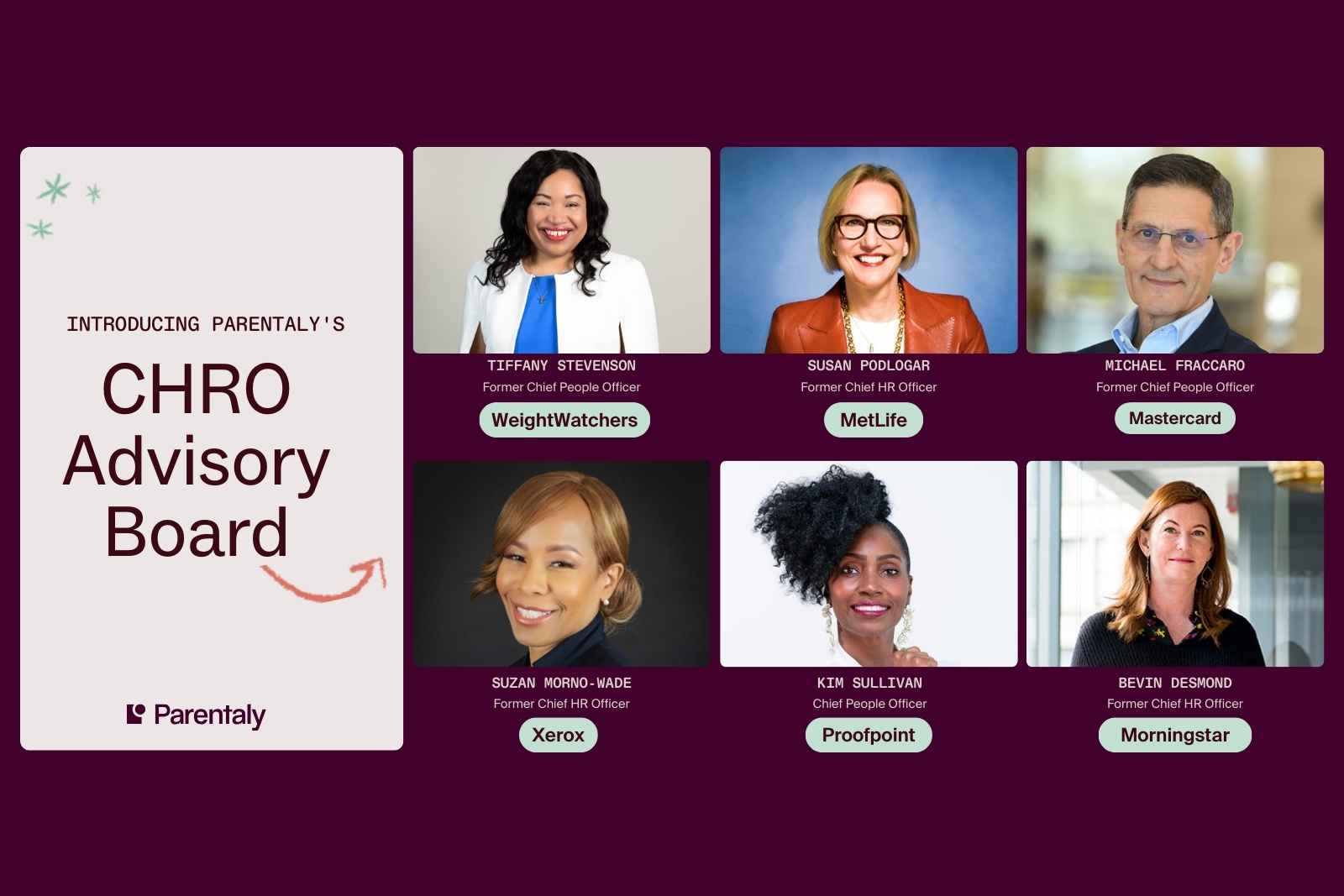What research says about the power of career coaching on the parental leave experience
Engaging with a career coach to support the parental leave experience is incredibly impactful for employees who are growing their families, according to research by Dr. Angela Passarelli, associate professor at Duke, and Spela Trefalt, associate professor at Simmons.
The two researchers conducted a study about career coaching through parental leave and found career coaching - especially for new mothers - can “powerfully influence career decisions and experiences before, during and after they welcome a child.”
The research also points to career coaching as a mechanism that gives new parents the support they need to not only stay in the workforce, but grow into leadership at their organizations.
Why did they decide to research the impact career coaching has on parental leave, and what were the most interesting findings?
Here are our top three takeaways, per our interview with Angela and Spela on The False Tradeoff:
1. Mothers aren’t leaving the workforce - they’re finding better opportunities
Coaches interviewed in the study confirmed that women were not discussing whether to stay or leave their jobs in their coaching sessions.
Instead, Angela and Spela found that new parents were primarily focused on how to make their careers work alongside their new parenting roles.
They were seeking guidance on how to integrate the new responsibilities that came with parenthood into their existing careers.
The conversations often revolved around maintaining their high performance at work without compromising being present and engaged mothers.
This underscores how critical supportive structures like career coaching are in retaining and helping talented women grow in the workforce.
2. Having meaningful work and feeling valued is critical to parents
One of the most significant findings was the importance of meaningful work in retaining new parents in the workforce: Women were more likely to stay with their employers if they felt their work was valuable and fulfilling.
Angela and Spela’s research found that if women did not perceive their work as meaningful or impactful, they were more likely to consider leaving their jobs for better opportunities with more satisfying work elsewhere.
This insight suggests that employers should focus on creating engaging and meaningful roles for employees returning from parental leave to improve retention rates.
3. The best time to invest in a career coach is before taking parental leave
A final point we discussed is the hypothesis that it’s most beneficial to start coaching early in the parental leave process.
According to Spela, "The psychological shift begins once a mother knows she's pregnant. Coaching from the start helps her envision a desired future and create a new identity. If you only focus on the end, it’s harder to backtrack and address foundational changes."
This is why Parentaly’s coaching programs start prior to a participant’s parental leave vs. only focusing on the return-to-work experience.
Early coaching helps employees identify their long-term career vision, allowing them to build a coverage plan that supports that vision. It also helps shape the division of labor at home, setting the stage for a successful transition back to work.
Turning parental leave into a win-win for employees and businesses
Angela and Spela's research makes a strong case for why parental leave coaching is beneficial to both employees and their employers.
Their work underscores the need for a systemic approach that includes support for both expecting employees and managers, which is exactly what Parentaly provides to our clients.
Because parental leave coaching is not just about providing support during a transitional period.
It’s about preparing both the employee and those in their workplaces for success, ensuring that career development continues seamlessly - which in turn, brings more value to the business.
Heading 1
Heading 2
Heading 3
Heading 4
Heading 5
Heading 6
Lorem ipsum dolor sit amet, consectetur adipiscing elit, sed do eiusmod tempor incididunt ut labore et dolore magna aliqua. Ut enim ad minim veniam, quis nostrud exercitation ullamco laboris nisi ut aliquip ex ea commodo consequat. Duis aute irure dolor in reprehenderit in voluptate velit esse cillum dolore eu fugiat nulla pariatur.
Block quote
Ordered list
- Item 1
- Item 2
- Item 3
Unordered list
Text link
Bold text
Emphasis
Superscript
Subscript


















.jpg)










